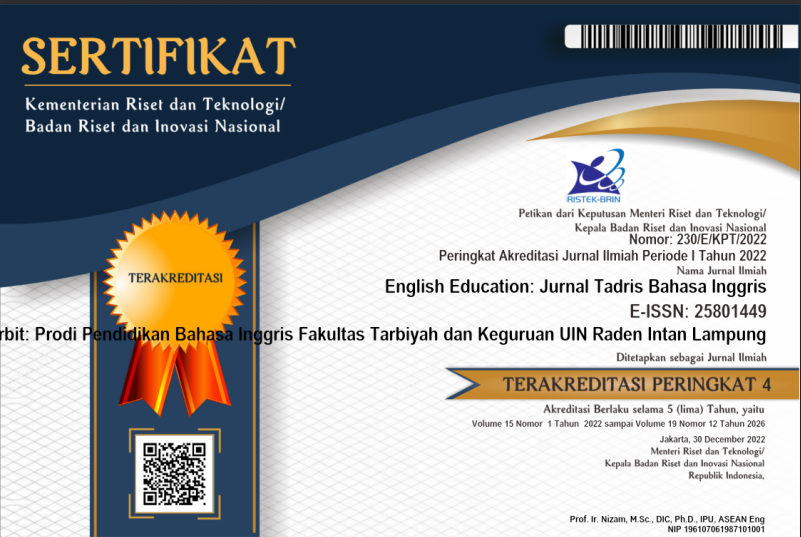Project Based Learning in English for Specific Purposes (ESP) Course for Pre-Service Teacher
Abstract
Full Text:
PDFReferences
Astika, Gusti. 1999. The Role of Needs Analysis in English for Specific Purposes. Universitas Kristen Satya Wacana: Salatiga. Journal DOAJ
Basturkmen, Helen. 2010. Developing Courses in English for Specifi Purposes.
Hutchinson, T. & Waters, A. 1987. English for Specific Purposes: A learner-centered approach. Cambridge University Press.
Mergendoller, J.R. & Thomas, J.W. 2010. Managing project-based learning: Principles from the field. Retrieved August 7, 2016, from http://www.newtechnetwork.org/research/managing-project-based-learning-principles-field.
Paltridge, B., & Starfield, Sue. 2013. The Handbook of English for Specific Purposes. British: John Wiley & Sons, Inc.
Patton, Allan. 2012. Work That Matter: Teacher’s Guide to Project Based Learning. The Paul Hamlyn Foundation
Stoller, F. 2006. Establishing a theoretical foundation for project-based learning in second and foreign-language contexts. In G.H. Beckett & P.C. Miller (Eds.), Project-based second and foreign language education: past, present, and future (pp.19-40). Greenwich, Connecticut: Information Age Publishing.
Thomas, J.W. 2000. A review of research on project-based learning. Retrieved August 7 2016,from
http://www.bobpearlman.org/BestPractices/PBL_ Research.pdf.
DOI: http://dx.doi.org/10.24042/ee-jtbi.v9i2.384
English Education: Jurnal Tadris Bahasa Inggris, UIN Raden Intan Lampung is licensed under a Creative Commons Attribution-ShareAlike 4.0 International License. pISSN: 2083-6003, eISSN: 2580-1449.









